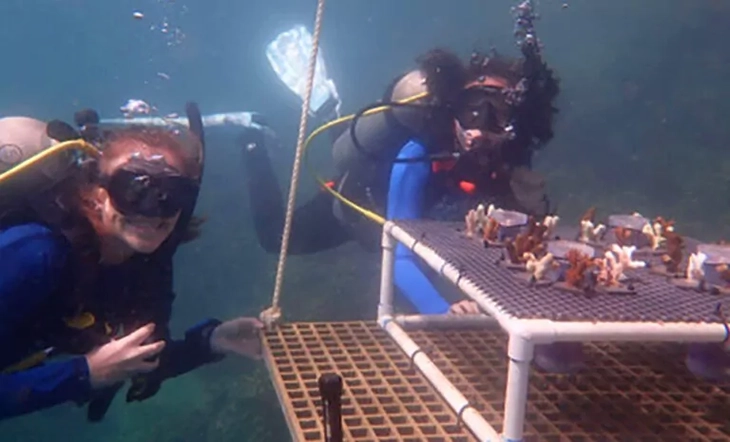

A New Tool in the Fight to Save Coral Reefs
Coral reefs around the globe are teetering on the brink of collapse, and the urgency to find viable solutions has never been greater. Amid this crisis, a team of scientists at The Ohio State University has developed an innovative device that could offer a temporary lifeline to these vital ecosystems. Called the Underwater Zooplankton Enhancement Light Array—UZELA, for short—this low-tech yet high-impact tool aims to support coral survival by addressing a fundamental ecological need: nutrition.
Illuminating a Path Forward
At its core, UZELA is a programmable, submersible lighting system engineered to attract zooplankton—microscopic organisms that constitute a major part of many coral species’ diets. The mechanism is relatively simple but remarkably effective. By emitting targeted light for just an hour each night, UZELA draws in significantly higher concentrations of zooplankton—up to seven times the natural baseline. This surge in food availability directly benefits corals, allowing them to feed more effectively and potentially improving their resilience to environmental stress.
“Coral reefs house one-third of all marine species, yet occupy less than one percent of the ocean,” explained Andréa Grottoli, lead author of the study and a professor of earth sciences at The Ohio State University. “They are disproportionately responsible for ocean health, and we’re at risk of losing them.”
To test the device’s effectiveness, researchers deployed UZELA near two native Hawaiian coral species: Montipora capitata and Porites compressa. The results, published in the journal Limnology and Oceanography: Methods, were dramatic. Coral feeding rates skyrocketed, increasing by 10- to 50-fold in areas exposed to UZELA’s nightly light emissions.
Temporary Relief in a Warming World
Despite its promise, UZELA is not a panacea. Coral reefs are under siege from multiple fronts—rising ocean temperatures, acidification, pollution, and overfishing all play a role in their decline. Most recently, a mass coral bleaching event that occurred between February 2023 and April 2024 affected over 60.5% of the world’s coral reefs, according to data from the U.S. National Oceanic and Atmospheric Administration (NOAA).
Bleaching occurs when corals, stressed by excessive heat, expel the symbiotic algae that live in their tissues. These algae not only give corals their brilliant colors but also provide essential nutrients through photosynthesis. Without them, corals become more susceptible to disease and mortality. While zooplankton can’t replace the nutrients lost through algae, they can supplement the coral’s diet and improve survival odds during periods of stress.
Grottoli is quick to temper expectations. “Think of it as a band-aid for about a couple of decades,” she said. “It can protect some corals in some places, sometimes.”
Designed with Practicality in Mind
One of UZELA’s standout features is its real-world usability. Each unit operates on a single battery that lasts up to six months, minimizing the need for frequent intervention. Additionally, the device is designed so that trained divers can perform basic maintenance and repairs without needing specialized equipment or support.
Importantly, the timing of the nightly light display—just one hour—was carefully chosen to strike a balance. This window is long enough to attract zooplankton and feed nearby corals, but short enough to avoid major disruptions to other marine organisms that rely on darkness for feeding, migration, and reproduction.
Still, one significant hurdle remains: scalability. At present, each UZELA device is assembled by hand, limiting how many can be deployed at any given time. To address this bottleneck, the research team is working with a local engineering firm to develop a mass-producible version. If successful, the upgraded model could be ready for broader implementation within the next one to three years.
Buying Time, Not the Final Answer
Even with tools like UZELA in the field, experts stress that these efforts are, at best, stopgap measures. The true solution lies in tackling climate change head-on—a goal that continues to face major political, economic, and societal challenges.
“We are not mitigating climate change fast enough to save coral, and UZELA is not going to instantly save coral reefs,” Grottoli cautioned. “But it is an exciting solution that will buy us time as we work toward a more sustainable environment.”
UZELA may not halt the global decline of coral reefs, but it offers a glimpse of hope—a creative, adaptable, and immediate way to support coral health while the world grapples with the bigger picture. As scientists continue to search for answers, innovations like UZELA serve as crucial tools in a race against time to preserve some of the planet’s most biodiverse and beautiful marine habitats.
What are your thoughts? Please comment below and share this news!
True Activist / Report a typo







